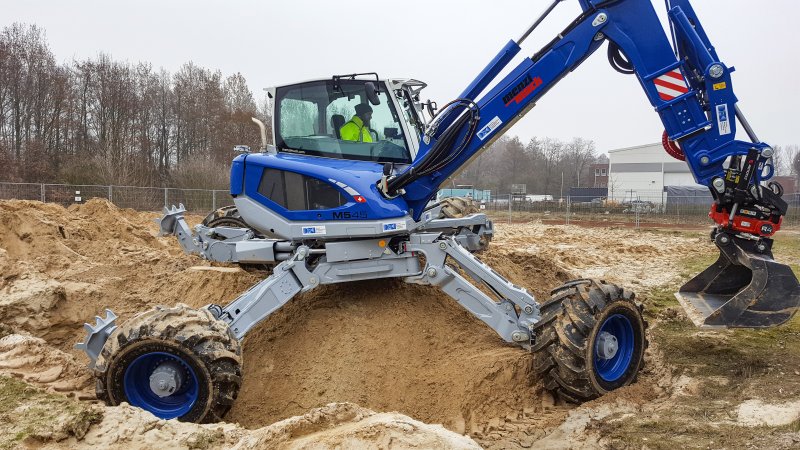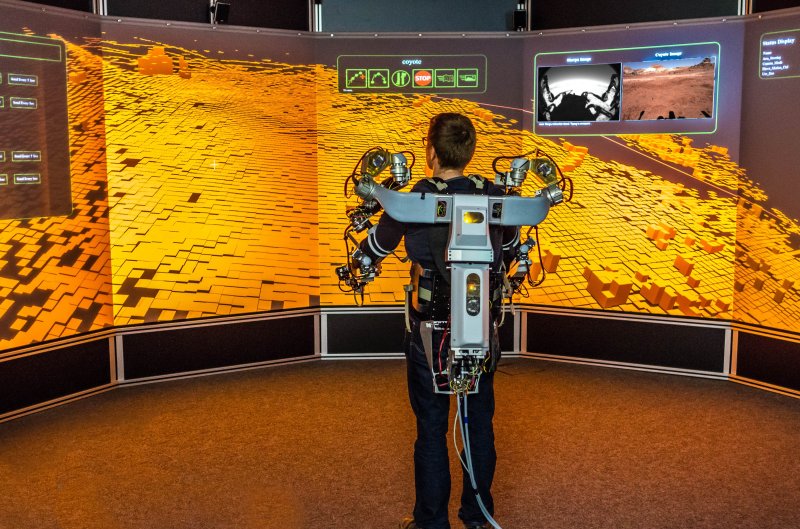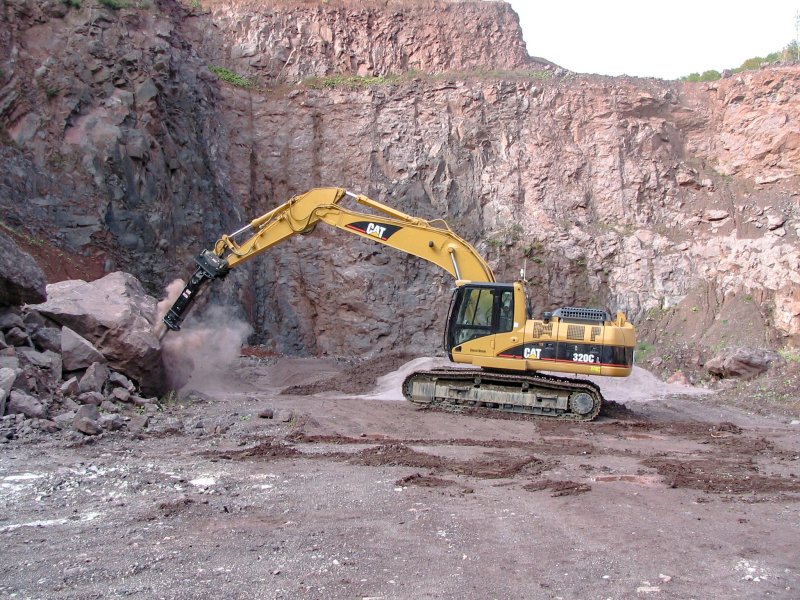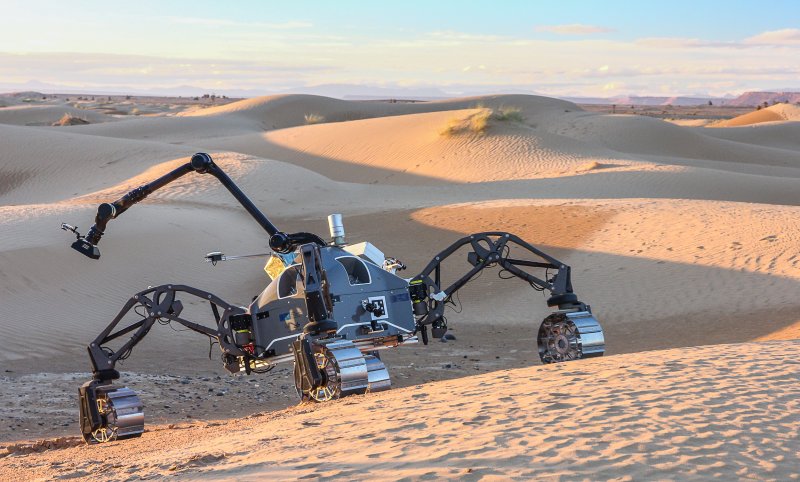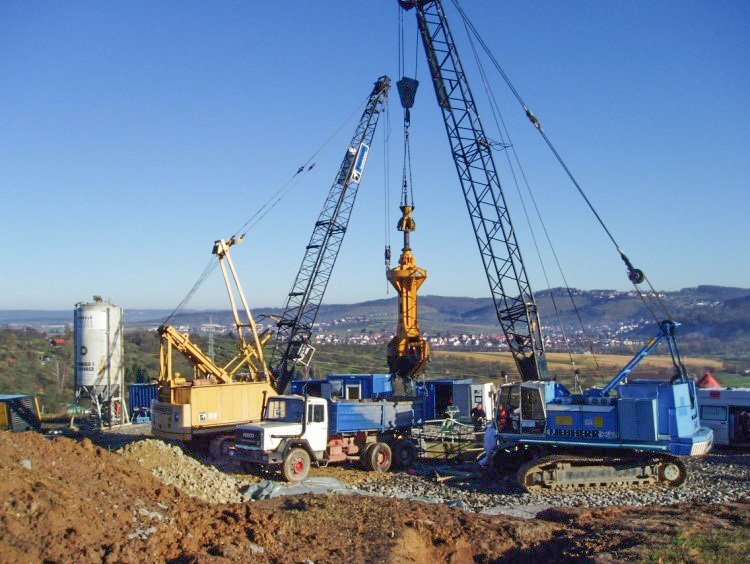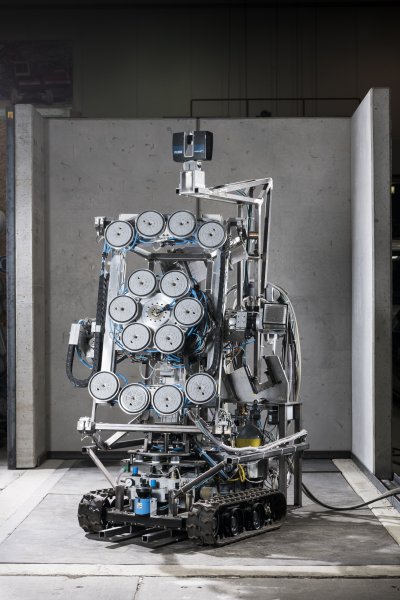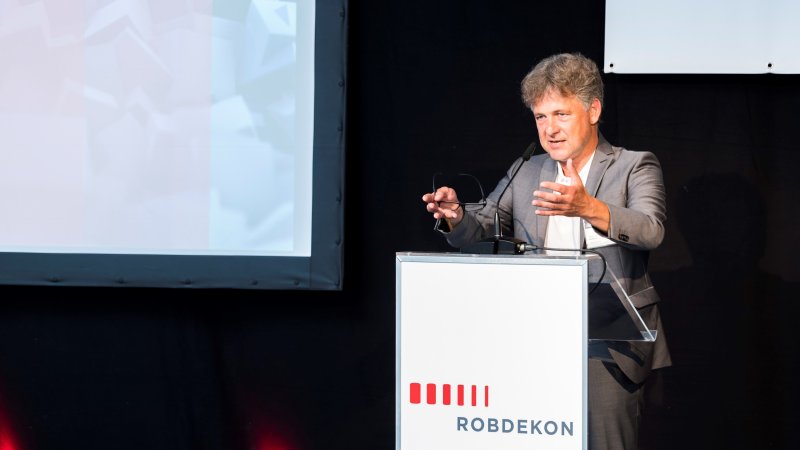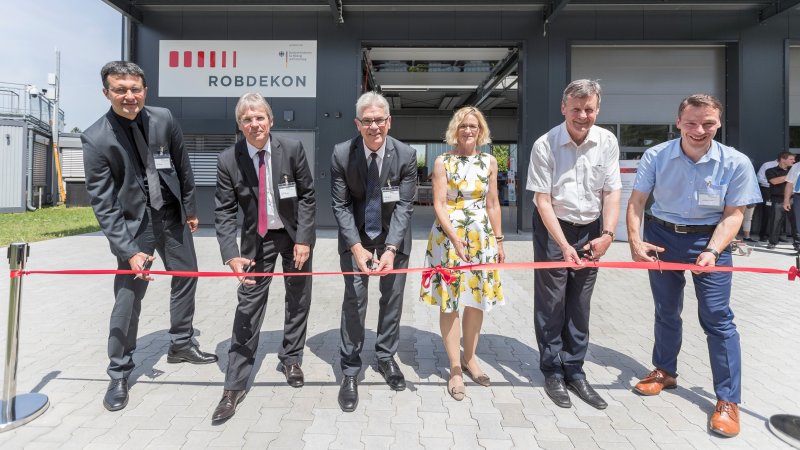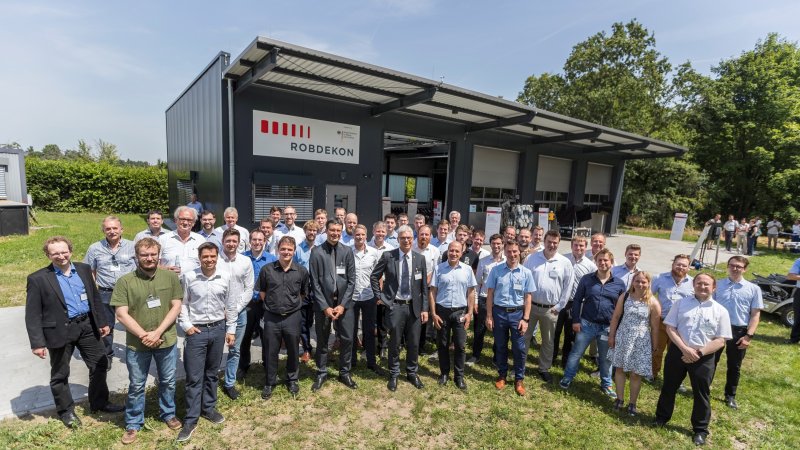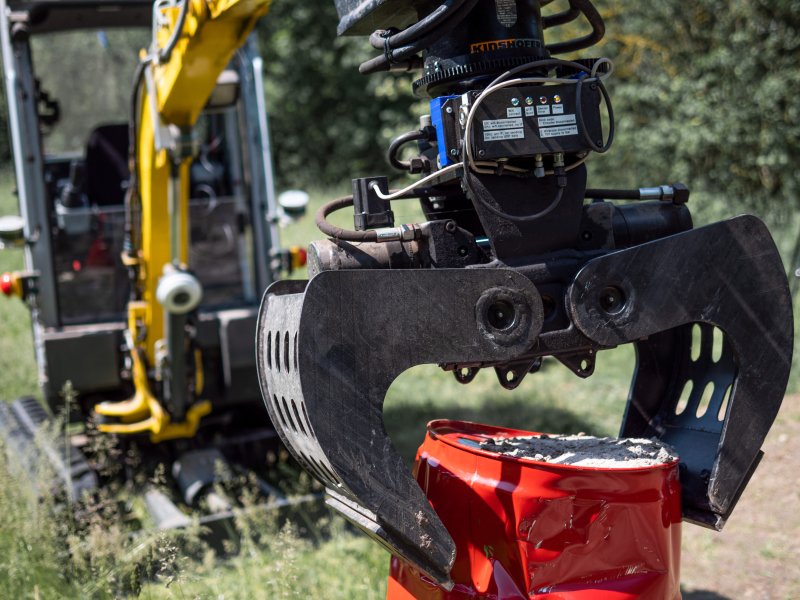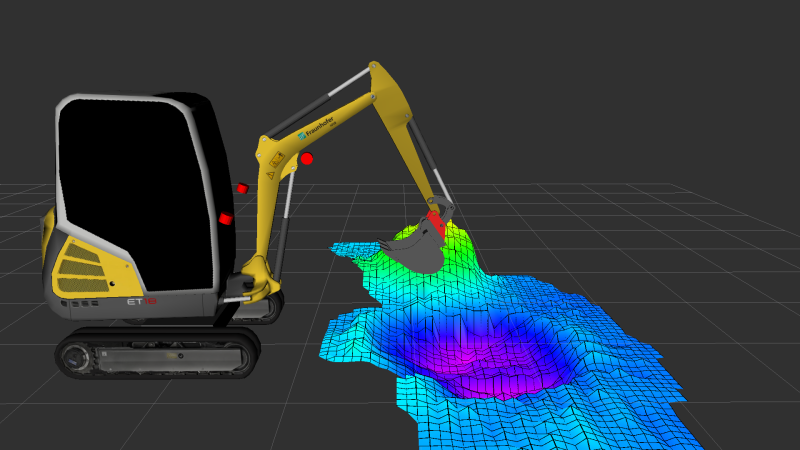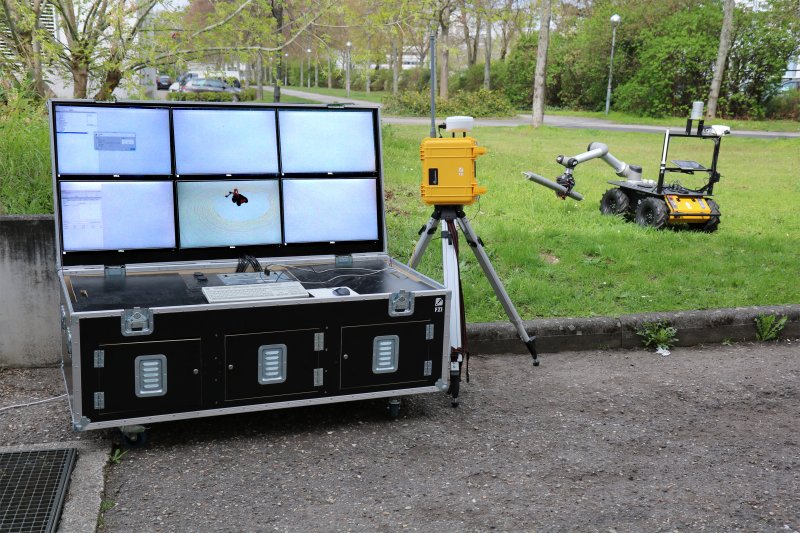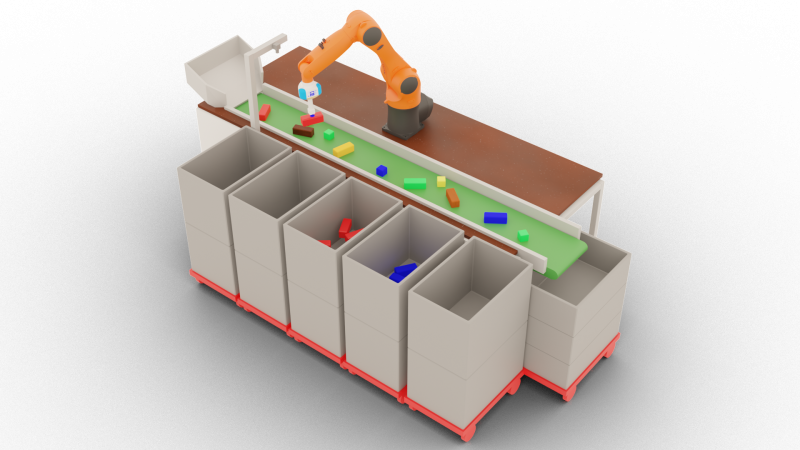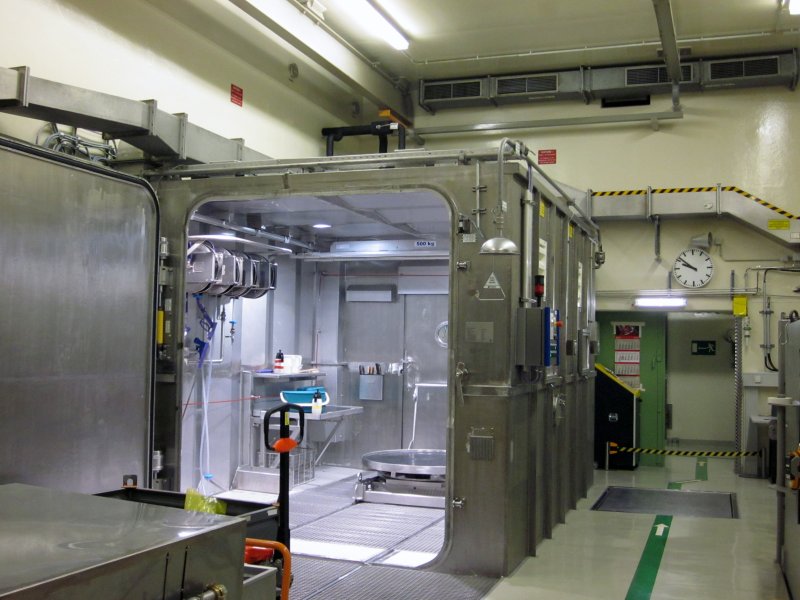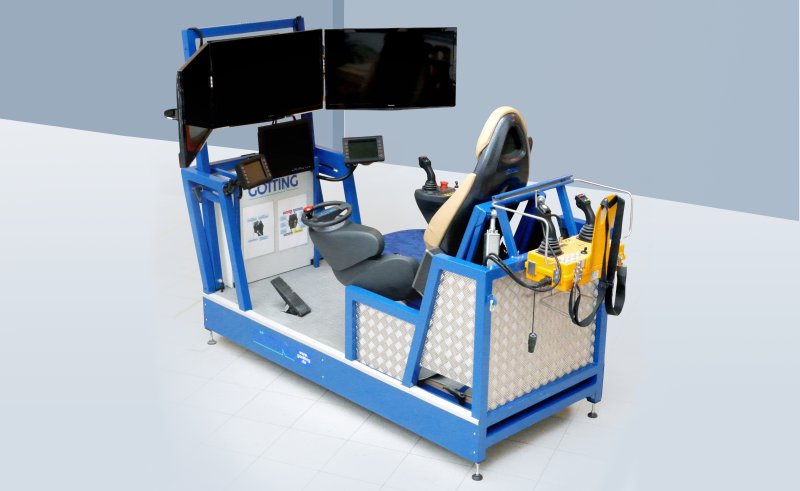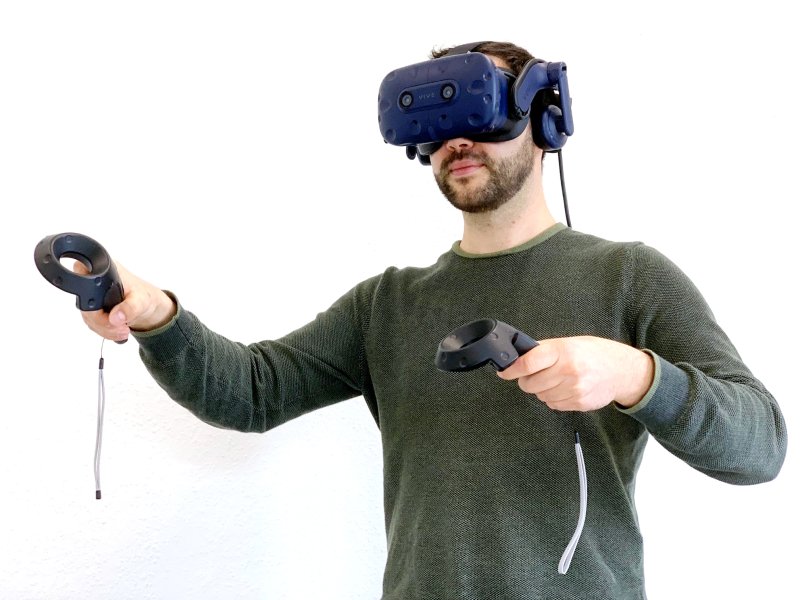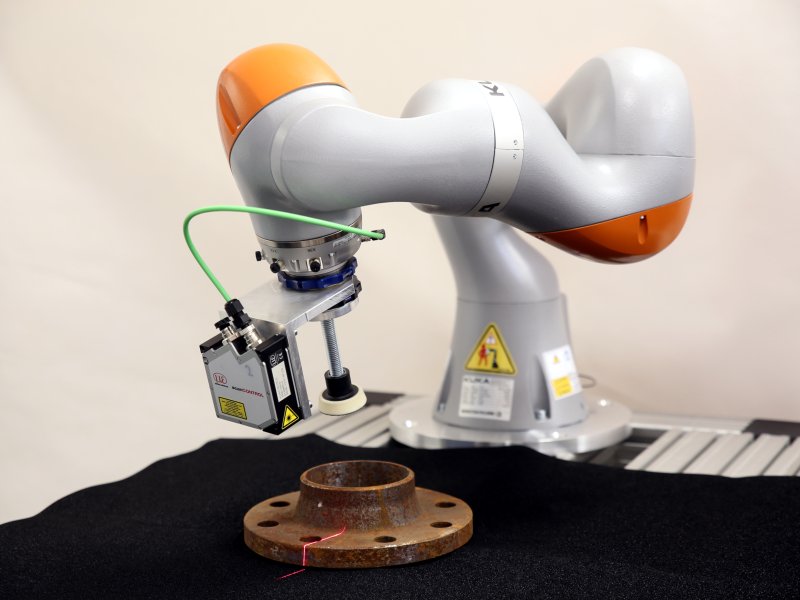· Press Release
»ROBDEKON«: Central contact point for the development of robots for decontamination tasks opened
When chemically contaminated sites or old landfills are remediated, toxic waste is sorted or nuclear facilities are dismantled, people work in environments that are hazardous to their health: they handle pollutants, there is a risk of fire or explosion, or the level of radioactive radiation is increased. This makes complex and often stressful protective measures necessary. This could be remedied by robots and autonomous machines that can carry out the work without an operator nearby. There is now a central point of contact for researching and testing the technologies required for this purpose: on 25 June, the »ROBDEKON Competence Center - Robots for Decontamination in Hazardous Environments«, funded by the German Federal Ministry of Education and Research (BMBF), was opened in Karlsruhe.
A small excavator digs a hole at a given location. No one is sitting in the driver’s cab, a computer in an aluminum box on the roof controls it. A futuristic vehicle, the four wheels suspended from moving constructions reminiscent of spider legs, shows its various modes of movement that can cope with just about any terrain. A humanoid robot independently picks a plant component from a collection of objects, observes it from different angles, cleans it in a water bath and deposits it in a container. These and many other exhibits at the ROBDEKON opening ceremony on the premises of the Fraunhofer Institute of Optronics, System Technologies and Image Exploitation IOSB demonstrated the potential of robots when it comes to decontamination activities.
»ROBDEKON brings together the key experts in decontamination robotics and creates the basis for sustainable cooperation for the transfer of innovations in practice,« said Dr. Andrea Detmer, Head of the Department of Civil Safety Research at the BMBF, during the event, which also saw the ribbon-cutting ceremony of a new laboratory hall for ROBDEKON. »The competence center will thus become the crystallization nucleus for developments that use artificial intelligence to generate very tangible added value for people who are exposed to potential health hazards on a daily basis, e.g., in the remediation of landfills and contaminated sites. The aim is to relieve them of stressful work and thus minimize risks to life and limb«.
Günther Leßnerkraus, Head of Department for Industry, Innovation, Business-oriented Research and Digitization in the Baden-Württemberg Ministry of Economic Affairs, said: »Artificial intelligence is the key technology of the future - in practically all areas of life. The new ROBDEKON Competence Center is an excellent example of the many ways in which intelligent applications can be used. Especially medium-sized companies will benefit from the technologies developed here«.
Karlsruhe’s Mayor Dr. Frank Mentrup congratulated the four participating research institutions - in addition to the Fraunhofer IOSB in charge, the Karlsruhe Institute of Technology (KIT), the FZI Research Center for Information Technology and the Robotics Innovation Center of the German Research Center for Artificial Intelligence (DFKI) in Bremen - on the successful start: »ROBDEKON is one of only two research centers for robotic systems in hazardous environments that are funded under the BMBF’s ›Research for Civil Security‹ program. This underlines the special importance of the city of Karlsruhe as a science and technology location and its radiant power for future developments in the handling of robotic systems at federal level«.
Prof. Dr.-Ing. habil. Jürgen Beyerer, head of Fraunhofer IOSB, ROBDEKON spokesman and chair holder at KIT, explained the concept and the current status of the competence center. »Since the start of funding in 2018, we have been able to establish a unique research infrastructure that combines all necessary technological capabilities and will continue to develop them sustainably,« said Beyerer. Robotics and hardware system development, aspects of artificial intelligence such as environmental perception, orientation, motion planning or decision-making under uncertainty, but also human-machine interaction were covered by the partners. In addition, there is the exact knowledge of the application domains that the participating companies contribute.
As a central contact point for all questions concerning robotics for decontamination tasks, ROBDEKON is open to all those who wish to get involved or work on their projects with the support of the center’s experts, as Beyerer emphasized. »We offer consulting services, are happy to cooperate with other research institutions and are looking forward to an intensive dialogue with the relevant industry in order to develop targeted and practical solutions. Our maxim is to create maximum benefit for society and the economy by pooling our expertise«.
About ROBDEKON
ROBDEKON is one of two competence centers for robotic systems that the BMBF has been funding since 2018 as part of the »Research for Civil Security» program. It is coordinated by the Fraunhofer Institute of Optronics, System Technologies and Image Exploitation IOSB in Karlsruhe. Research partners are the Karlsruhe Institute of Technology (KIT), the FZI Forschungszentrum Informatik in Karlsruhe and the German Research Center for Artificial Intelligence GmbH (DFKI). Industrial partners are Götting KG, Kraftanlagen Heidelberg GmbH, ICP Ingenieursgesellschaft Prof. Czurda und Partner mbH and KHG Kerntechnische Hilfsdienst GmbH. The project will initially run for four years. The aim is to ensure that the competence center will continue to exist in the long term and act as an expert and user network for new technologies for decontamination using robots.
Pictures
For the following pictures the reprint is free of charge in the editorial area. Click on the images to get to the respective high-resolution version. Alternatively, you can download all high-resolution images collected in a ZIP archive at the end of the respective section.
Photos of the event
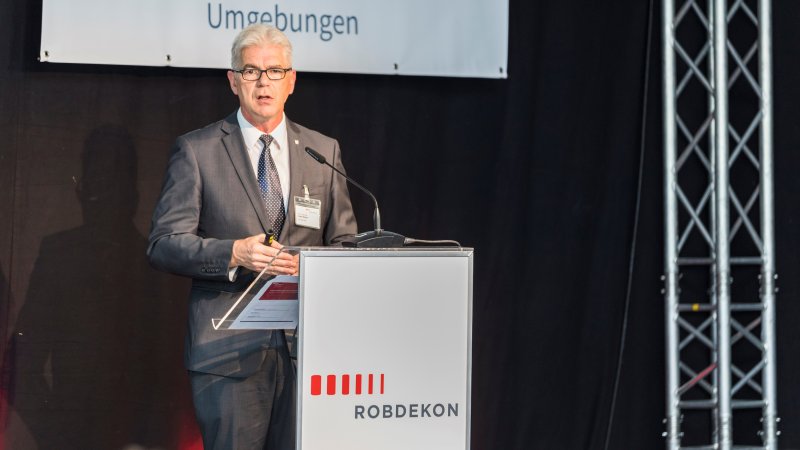
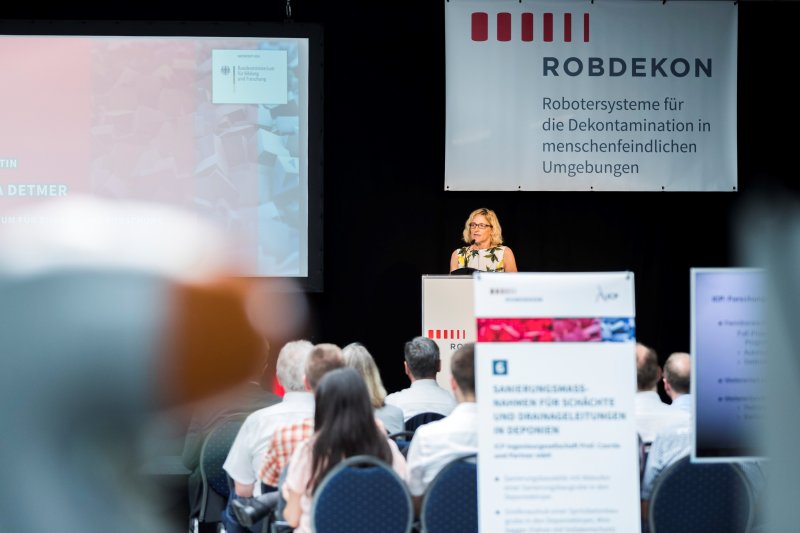
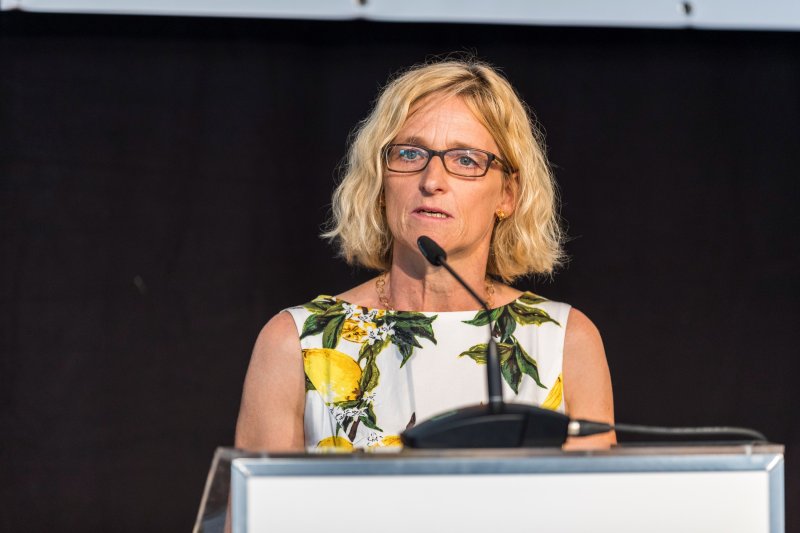
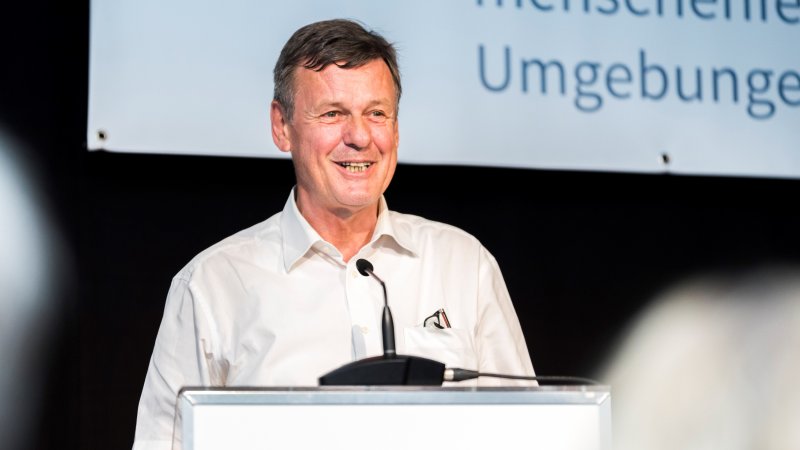
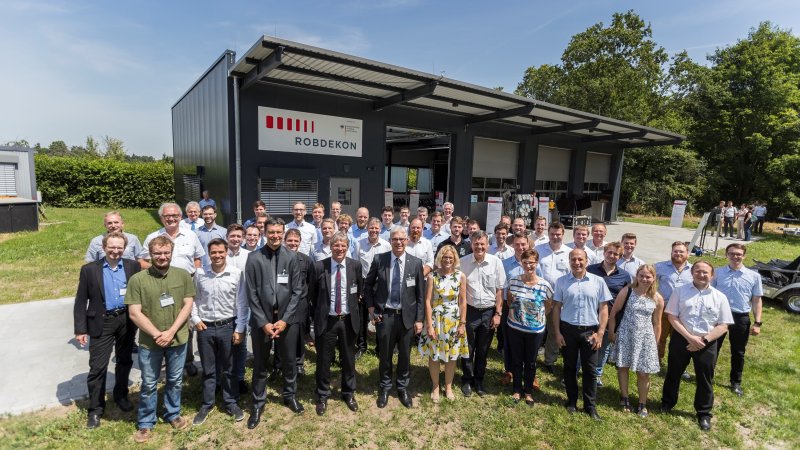
Download all pictures in one ZIP file
Further pictures of the exhibits
